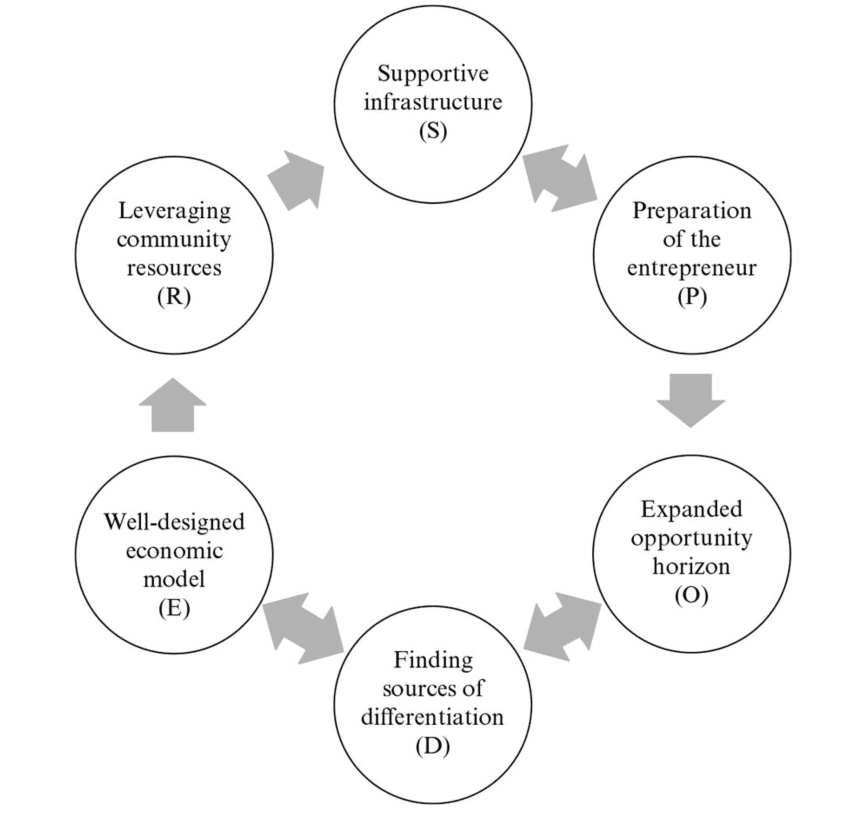Chasing the Expert is a Mistake: The Power of Collaborative Learning
Researchers in psychology and neuroscience have explored the concept that humans are inherently drawn to seeking out experts. People have a natural desire to learn from those who have already achieved success and follow in their footsteps, as demonstrated by the work of Rozenblit and Keil. However, this can lead to individuals overestimating their knowledge and relying too heavily on the expertise of others. The question is, what if there is another way to learn? What if we could learn just as much, if not more, from collaborating with others?
Through my experience working with students and small business owners, I know the best resource you can give a small business is a relationship with another small business. Some of the most valuable insights and breakthroughs come from shared thinking. I have encountered unique and complex questions specific to their journeys and business stages, making it challenging to provide a one-size-fits-all answer. That’s why collaborative learning is crucial, particularly for those facing complex challenges. Shared thinking is faster, more mature, and more creative, leading to better thinking. Great thoughts often emerge from many good thoughts, making shared thinking the only way to achieve great thinking.
No Advice is Better Than Bad Advice
I have witnessed inexperienced business people who think they are knowledgeable give bad advice or worse yet, discourage an entrepreneur’s creativity by shutting down their ideas and momentum. It’s essential to remember that no single person has all the answers or expertise. By collaborating and engaging in a supportive community, we can learn from each other’s successes and failures, and we can collectively develop innovative solutions to complex problems. This collaborative approach empowers entrepreneurs to approach their business challenges with a growth mindset, creativity, and a willingness to take risks. Ultimately, it can lead to the development of new products, services, and business models that positively impact society and the economy.
The SPODER model by Dr. Michael H. Morris reflects the ongoing cycle involved in the growth and development of a business, making it a valuable tool for entrepreneurs and mentors. It emphasizes the importance of seeking new opportunities, continuously learning and improving, and refining the value proposition and economic model.

Source: Michael H. Morris, Susana C. Santos and Xaver Neumeyer 2018
In his book “The Wisdom of Crowds,” James Surowiecki argues that groups are often smarter than the smartest people in them. He cites numerous examples, from guessing the weight of a cow at a fair to predicting the outcome of elections. In each case, the collective intelligence of the group was able to outperform even the experts. However, not everyone agrees that crowds are always wise. Jordan B. Peterson, a clinical psychologist and professor at the University of Toronto, argues that crowds can be dangerous if they’re not managed properly. He warns against the “tyranny of the majority,” in which the opinions of the group are allowed to overwhelm individual thinking and dissenting voices are silenced.
So, how do we tap into the power of collaboration while avoiding the pitfalls of groupthink? The answer lies in creating a safe and supportive environment for collaborative learning. One example of this is the Venture Mentoring Team (VMT), a group of experienced entrepreneurs and executives who provide mentorship to startups and small businesses. The VMT offers a “friendly, safe, educational environment” where entrepreneurs can network with other professionals and gain access to the collective wisdom of the group. The VMT utilizes a model that enables multiple mentors to engage in a meeting with a business or entrepreneur simultaneously, providing diverse perspectives and valuable feedback.
Every Stage of the Entrepreneurial Ecosystem
Mentorship is a key component of the entrepreneurial ecosystem and can take place at every stage of the business, from ideation to exit. At the ideation stage, pitch competitions, mentors, and training programs can help identify flaws and adapt the business idea. During the start-up phase, community social forums, small business development centers, and other resources can assist with everything from shared facilities and equipment to regulatory compliance. As the business stabilizes, professional service providers, mentors, and other small businesses can provide valuable resources. Even in the exit stage, mentors, government agencies, and potential acquirers can facilitate the harvest of the business.

Source: Michael H. Morris, Susana C. Santos and Xaver Neumeyer 2018
I am currently working with a team of scientists from Florida International University (FIU) to commercialize a university technology with the National Science Foundation. Our experience emphasizes the importance of collaborative learning and creating a supportive environment where team members can work together to achieve their goals. Our objective is to interview 100 people to identify a product-market fit, share key takeaways, and refine our approach. We aim to participate in the U.S. National Science Foundation’s Innovation Corps (I-Corps™) program, which extends our focus beyond the university laboratory and into the marketplace. Collaborative learning plays a crucial role in gathering insights and feedback from potential customers, investors, and other stakeholders to increase our chances of successfully bringing the technology to market and creating a positive impact on society and the economy. You can see the project here: CogTracer.
The Power of Collaborative Learning in Church Communities
Collaborative learning isn’t just for startups and small businesses. In church communities, small group meetings have become increasingly popular as a way to foster deeper connections and encourage spiritual growth. These groups often center around a shared interest or activity, such as Bible study or volunteering, and provide a space for members to learn from one another and support one another in their faith journeys.

In fact, my own family has experienced the benefits of collaborative learning through a small group in our church. When our daughter was diagnosed with acute lymphoblastic leukemia, we faced a major challenge. We didn’t know how to handle the situation, and we felt lost and overwhelmed. But through our small group, we found a safe environment where we could share our struggles and solicit wisdom and guidance from others. We learned from the experiences of other families who had gone through similar challenges and received practical advice on how to manage our daughter’s treatment. We also found emotional support and encouragement that helped us stay strong through the difficult times.
This experience taught me that collaborative learning is not just about professional or business growth; it’s about personal growth and overcoming challenges. It’s about building a community of like-minded individuals who can support each other in their personal and professional lives.
In conclusion, seeking out experts is important, but it’s equally vital to recognize the power of collaborative learning. As John Maxwell emphasizes in “The 16 Undeniable Laws of Communication,” effective communication is a shared responsibility that requires both parties to be actively engaged in the process. By fostering a safe and supportive environment for shared thinking, we can tap into the collective wisdom of the group and achieve greater success together than we ever could on our own. Collaborative learning allows us to not only learn from those who have come before us but also learn from one another, encouraging the exchange of new ideas and approaches to problem-solving.
To learn more about how to develop a collaborative organizational environment and structure, listen to our podcast: Managerial Ignorance & Failure to Organize
